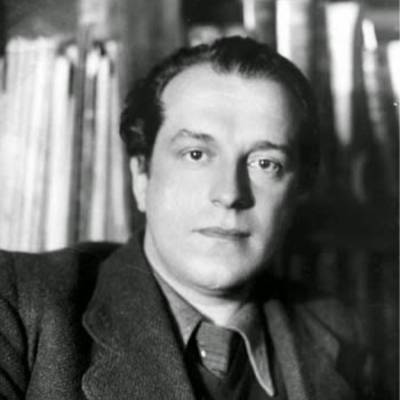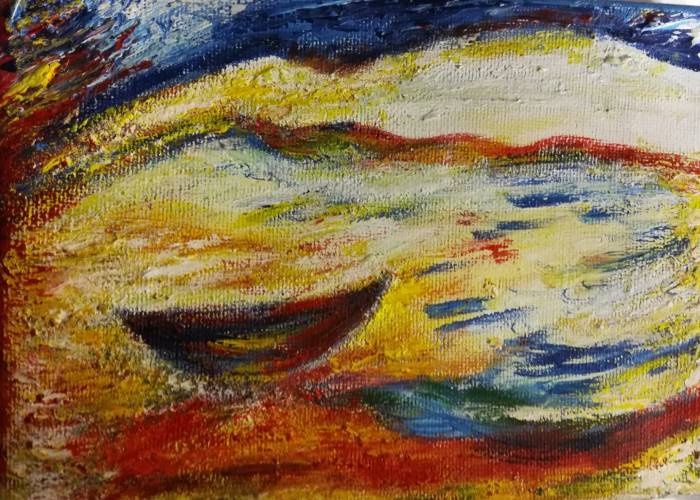About the Author:

Rafael Alberti
Spain
Rafael Alberti (16 December 1902 – 28 October 1999) was a Spanish poet. He is considered one of the greatest literary figures of the so-called Silver Age of Spanish poetry.

Retorcedme sobre el mar,
al sol, como si mi cuerpo
fuera el jirón de una vela.
Exprimid toda mi sangre.
Tended a secar mi vida
sobre las jarcias del muelle.
Seco, arrojadme a las aguas
con una piedra en el cuello
para que nunca más flote.
Le di mi sangre a los mares.
¡Barcos, navegad por ella!
Debajo estoy yo, tranquilo.
Rafael Alberti. Marinero en tierra, 25
* * *
Выкрути меня над морем,
на солнце, будто мое тело —
лоскут паруса.
Выжми из меня всю кровь.
Повесь мою жизнь сушиться
на такелаже пирса.
А высохну, брось меня в воду
с камнем на шее,
чтобы я не всплывал.
Свою кровь я отдал морям.
Плывите по ней, корабли!
Я спокоен, лежу на дне.
Перевод на русский Нины Косман
* * *
Wring me out over the sea,
in the sun, as though my body
were the shred of a sail.
Squeeze out all my blood.
Spread my life to dry
over the rigging of the pier.
Once dry, throw me into the water
with a stone around my neck
so that I’ll never float again.
I gave my blood to the seas.
Sail through it, ships!
I’m down below, resting.
English translation by Jose A. Elgorriaga & Martin Paul; 100 Poems by Rafael Alberti. San Francisco: Kosmos, 1981.

Rafael Alberti (16 December 1902 – 28 October 1999) was a Spanish poet. He is considered one of the greatest literary figures of the so-called Silver Age of Spanish poetry.
This excellent anthology, compiled and edited by Julia Nemirovskaya, showcases poems by Russian (and Russian-speaking) poets who express their absolute rejection of Russia’s war against Ukraine.
The documentary novel “The Tenth Circle” tells the story of the life, struggle, and destruction of the Minsk ghetto, one of the largest in the Soviet Union and Europe during World War II. (Russian edition)
“Monkey’s Defense” is a collection of short stories and parables by Nina Kossman, bilingual author of several books of poetry and prose and translator of Marina Tsvetaeva’s poems into English.